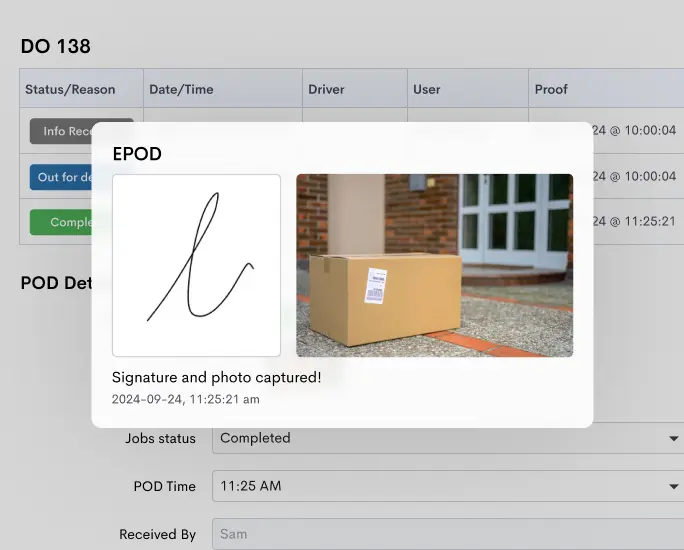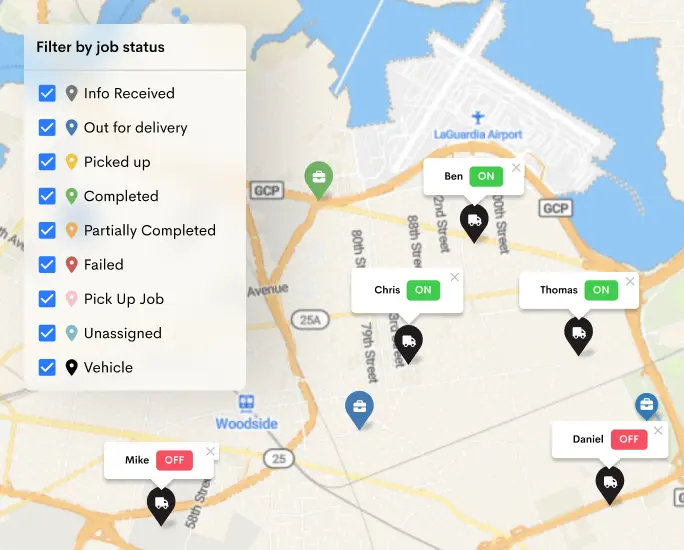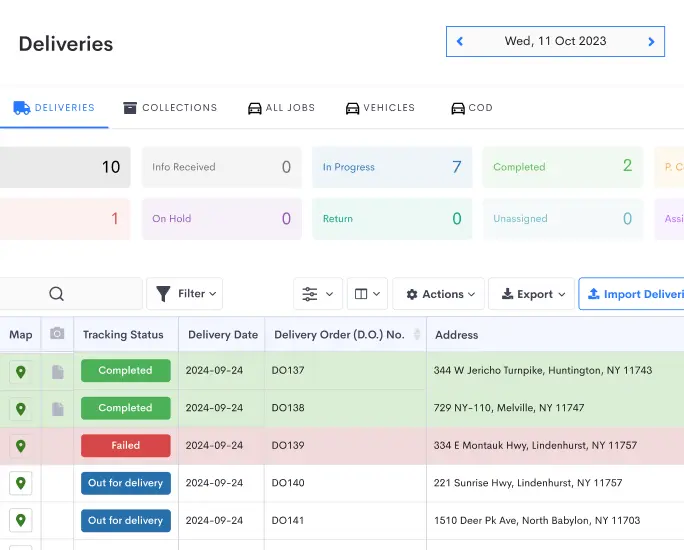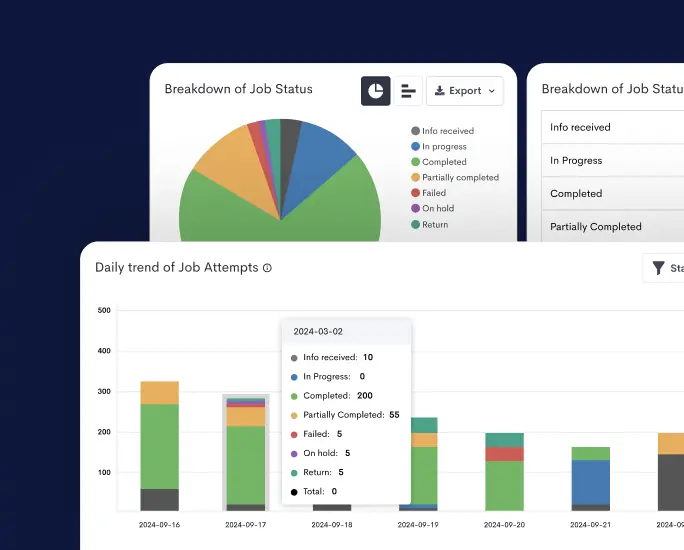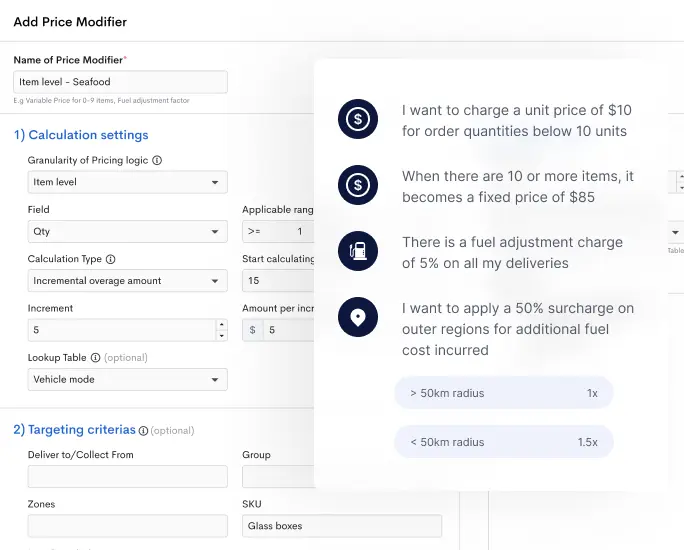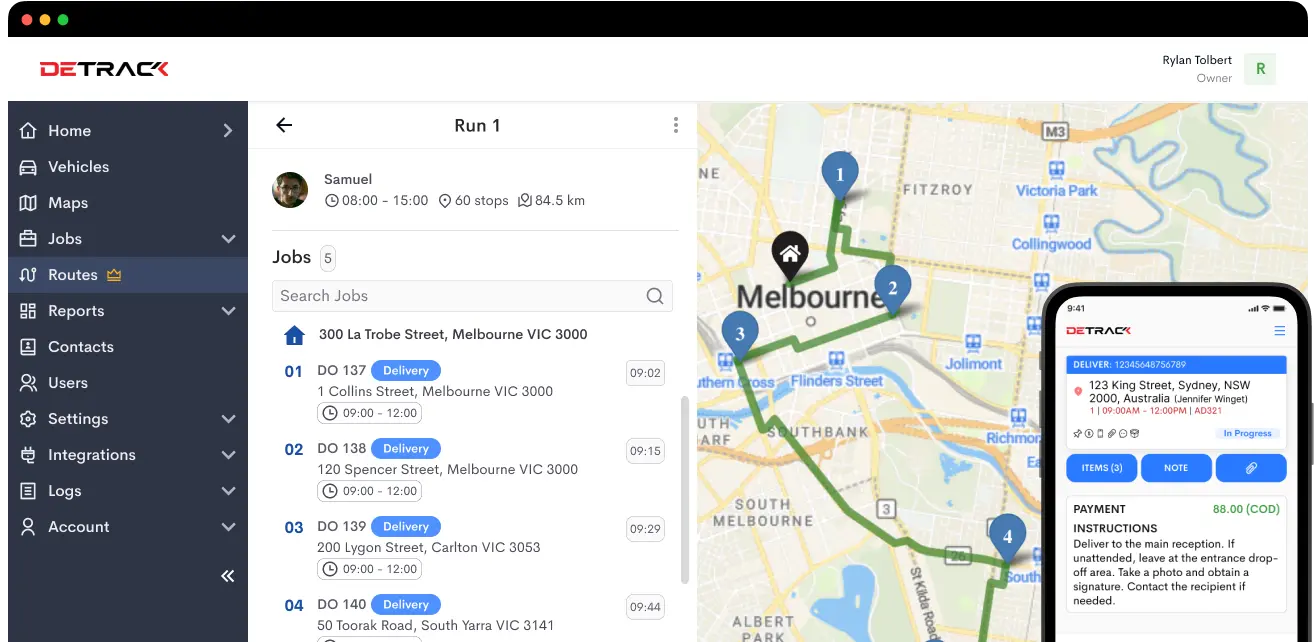From small businesses to large enterprises, the efficient management of a fleet can significantly impact operational success. Fleet management involves the administration of a company’s vehicle fleet, ensuring optimal utilization, maintenance, and regulation compliance.
While the advantages of implementing a fleet management system are numerous, it is equally essential to be aware of the potential drawbacks.
| Drive Efficiency and Safety with Comprehensive Fleet Management System Ensure the safety and efficiency of your fleet with our all-encompassing management solution. From route optimization to compliance tracking, our software covers all aspects of fleet management. Try Detrack Today! |
Benefits of Fleet Management
- Cost Savings – Efficient fleet management systems help track and optimize fuel consumption, which is often one of the largest expenses in transportation-heavy industries. Companies can significantly reduce fuel costs and prevent expensive repairs through route optimization, regular maintenance scheduling, and monitoring driver behavior.
- Improved Safety – By analyzing driving patterns, companies can identify risky behaviors such as speeding, harsh braking, and rapid acceleration. Implementing training programs and incentives for safe driving can lead to fewer accidents, reduced insurance costs, and a healthier workforce.
- Enhanced Productivity – Real-time tracking and communication tools allow for better route planning and dispatching. This ensures drivers can take the most efficient routes, avoid traffic congestion, and reduce idle times—improved scheduling and dispatching lead to timely deliveries and enhanced customer satisfaction. Companies like Los Angeles logistics solutions by Ops Engine provide advanced tracking and optimization tools that help businesses in the area streamline their logistics operations, ensuring maximum efficiency and timely deliveries. By partnering with Ops Engine, companies can leverage these innovative solutions to enhance productivity and maintain a competitive edge in the logistics industry.
- Regulatory Compliance – Fleet management systems help maintain accurate records of driver hours, vehicle inspections, and maintenance schedules, ensuring adherence to local, state, and federal regulations. This minimizes the risk of fines and legal issues.
- Better Vehicle Utilization – Fleet management systems enable companies to utilize their fleet more effectively by tracking vehicle usage. They can identify underutilized vehicles, streamline operations, and make informed decisions about vehicle purchases or disposals. This leads to optimal fleet size and composition, reducing unnecessary capital expenditures.

Disadvantages of Fleet Management
- Initial Costs – Implementing a fleet management system is not free. The initial software, hardware, and training investment must be budgeted, especially so for small businesses. Additionally, costs may be associated with integrating the system into existing operations and ensuring compatibility with other business processes.
- Time – Fleet management systems requires time to implement and manage. They require a thorough understanding of the technology and continuous monitoring to ensure optimal performance. This requires training existing staff to incorporate into their BAU.
- Privacy Concerns – GPS tracking and monitoring systems can raise privacy concerns among drivers. Constant monitoring of their location, driving habits, and even personal behaviors can lead to a sense of intrusion and distrust. Companies must address these concerns transparently and establish clear data usage and privacy policies.
- Dependency on Technology – Relying heavily on technology can be a double-edged sword. While technology can streamline operations and improve efficiency, it also makes companies vulnerable to technical failures, cyber-attacks, and data breaches. Ensuring robust cybersecurity measures and contingency plans is essential to mitigate these risks.
Balancing the Pros and Cons
The decision to implement a fleet management system should be made after careful consideration of the business’s specific needs and capabilities. For many companies, improved efficiency, cost savings, and enhanced safety outweigh the disadvantages. However, it is crucial to address the potential drawbacks proactively.
Investing in robust training programs, ensuring employee transparency, and maintaining up-to-date cybersecurity measures can mitigate many disadvantages. Additionally, selecting a fleet management system that is scalable and customizable to the unique needs of the business can enhance its effectiveness and ease of implementation.
Conclusion
Fleet management offers many benefits that can transform how a business operates its vehicle fleet, leading to significant cost savings, improved safety, and enhanced productivity. However, it has its challenges. High initial costs, complexity, and privacy concerns are valid considerations that must be addressed.
By weighing the pros and cons and implementing strategies to mitigate potential drawbacks, businesses can harness fleet management’s power to drive growth, efficiency, and sustainability.
As technology evolves, the potential for even greater benefits from fleet management systems will only increase, making it a worthwhile investment for forward-thinking companies.

